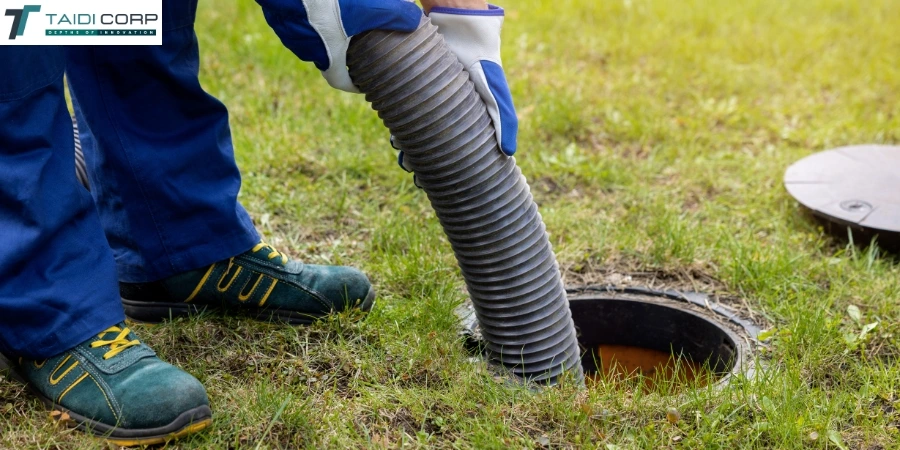
As a homeowner, property manager, or plumbing enthusiast, maintaining your sewage pump is crucial for preventing costly breakdowns and ensuring your system runs smoothly for years. Whether you’re new to sewage pump maintenance or a seasoned pro, these essential tips will help you stay on top of care and prevent unexpected failures.
Importance of Sewage Pump Maintenance
The Role of a Sewage Pump in Your Home
Sewage pumps play an essential role in managing wastewater, especially in homes and properties where sewage must be transported from lower levels (like basements) to the main sewer line. The pump ensures wastewater flows efficiently and prevents backups that can lead to severe damage.
Why Regular Maintenance is Essential
Without regular upkeep, sewage pumps can experience a variety of problems like clogs, motor failure, and backup. Neglecting maintenance can result in costly repairs or complete system replacement. Fortunately, proper maintenance can help avoid these issues, prolong the life of your pump, and save you money.
This guide will provide easy-to-follow, actionable tips to help you maintain your sewage pump and avoid unnecessary headaches.
Top 10 Maintenance Tips for Sewage Pumps
1. Regularly Inspect the Pump and Basin
The first step in maintaining your sewage pump is conducting regular inspections of both the pump and basin. Look for visible signs of wear, rust, or damage in the pump housing, as these issues can escalate if left unchecked. Debris accumulation in the basin can also obstruct the pump’s operation, leading to failure.
Actionable Tip: Schedule monthly visual checks to catch any issues early.
2. Test the Float Switch
The float switch plays a crucial role in activating the pump when water reaches a certain level. Test it regularly by manually raising the float to ensure it moves freely and activates the pump without issues. A stuck float can prevent the pump from turning on, leading to overflows and backups.
Actionable Tip: Check the float switch at least every 3 months, especially if the pump handles heavy usage.
3. Clean the Pump and Basin
Over time, sludge, grease, and debris can accumulate in the basin and on the pump, which can clog the system and impair performance. A regular cleaning schedule helps prevent these issues and ensures the pump operates efficiently.
Actionable Tip: Clean the basin and pump exterior at least twice a year.
4. Check the Discharge Line for Blockages
The discharge line is responsible for carrying wastewater out of the basin and away from your home. Blockages in the line can cause wastewater to back up into the pump, increasing the risk of failure. Check the line for any obstructions and ensure the check valve is working to prevent backflow.
Actionable Tip: Inspect the discharge line annually or whenever you notice slow drainage.
5. Monitor the Pump’s Noise Levels
If you hear unusual noises like grinding or excessive vibration, it could indicate an issue with the pump motor or impeller. Unaddressed noise can lead to motor burnout or mechanical failure.
Actionable Tip: Listen for strange noises during monthly inspections, and contact a professional if the problem persists.
6. Test the Backup Power System
Many sewage pumps come equipped with a battery backup to ensure functionality during power outages. Testing the backup system regularly ensures it’s ready when needed. Replace the battery every 3-5 years, or according to the manufacturer’s instructions.
Actionable Tip: Test the backup system every 6 months, especially before storm seasons.
7. Schedule Regular Professional Inspections
While DIY maintenance can catch many potential problems, a licensed plumber can conduct a more thorough inspection and address hidden issues. Annual inspections by a professional help ensure your sewage pump operates at its best.
Actionable Tip: Book a professional inspection every 12 months.
8. Keep the Area Around the Pump Clear
Clutter around the sewage pump can obstruct its operation and limit access for maintenance. A clear space also aids ventilation, preventing the pump from overheating.
Actionable Tip: Ensure at least 2 feet of clearance around the pump.
9. Replace Worn Parts Promptly
Don’t wait for complete failure—replace worn-out parts like seals, gaskets, and switches as soon as you notice wear. Keeping a log of replacements and inspections can help you stay on top of maintenance and extend the life of your sewage pump.
Actionable Tip: Maintain a maintenance log to track part replacements and inspection dates.
10. Understand the Signs of Pump Failure
Knowing the early signs of pump failure can help you prevent a total breakdown. Watch out for frequent cycling, foul odors, slow drainage, or leaks. If you detect any of these warning signs, address them promptly.
Actionable Tip: Educate yourself on common symptoms of pump failure, and contact a professional if you’re unsure of the problem.
Common Mistakes to Avoid
Many homeowners and property managers make avoidable mistakes that can lead to pump failure. Some common missteps include:
- Ignoring small leaks or slow drainage
- Overloading the system with non-degradable items like wipes or feminine hygiene products
- Failing to conduct regular inspections and cleanings
Avoiding these mistakes can save you significant time and money in the long run.
When to Call a Professional
There are times when it’s best to call a professional for help, especially for:
- Persistent issues after following DIY maintenance tips
- Electrical problems or wiring concerns
- Signs of pump failure that you can’t diagnose or fix yourself
A professional plumber can provide a thorough diagnosis and repair to keep your system running efficiently.
Conclusion
Maintaining your sewage pump is essential for avoiding costly repairs and keeping your home or property safe from sewage backups. By following these 10 tips, you can keep your pump running smoothly and extend its lifespan.
Remember, proactive maintenance is the key to preventing pump failure. If you ever encounter complex issues or are unsure about a potential problem, don’t hesitate to consult a professional.
Have you tried any of these maintenance tips? Share your experience in the comments below! If you need professional help with inspections or repairs, check out our trusted partners for expert sewage pump services.
By incorporating these regular maintenance practices into your routine, you’ll save money and stress—ensuring your sewage pump continues to work efficiently for years to come!
